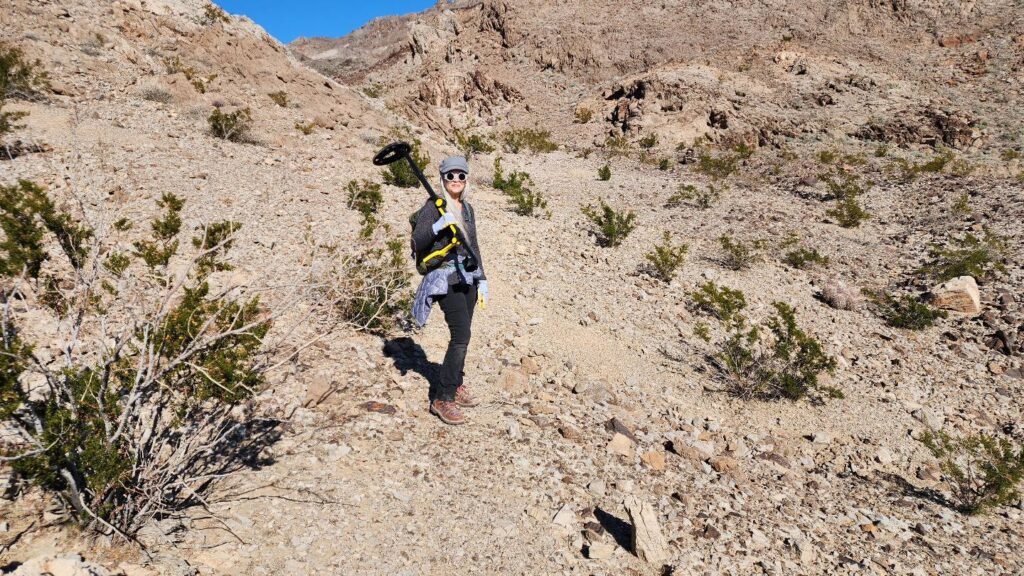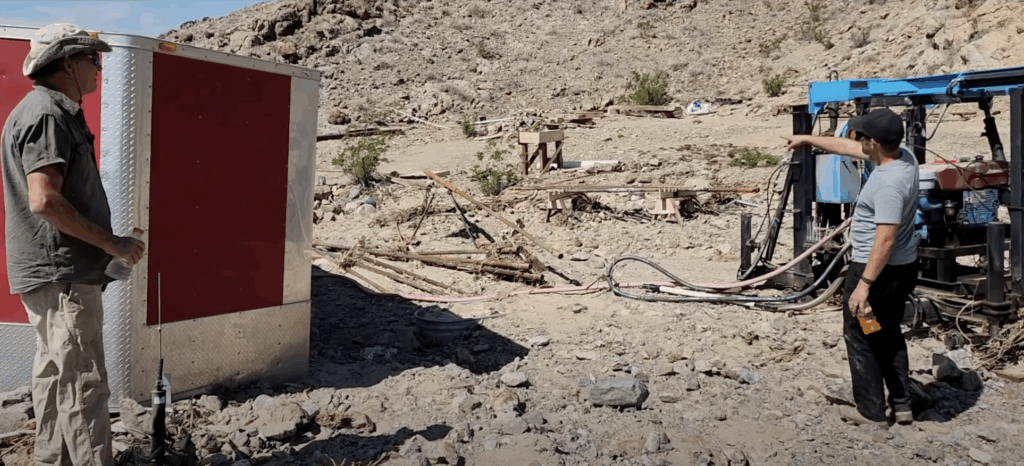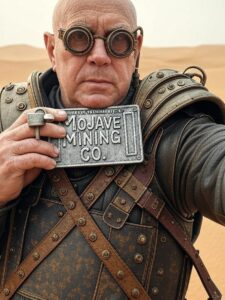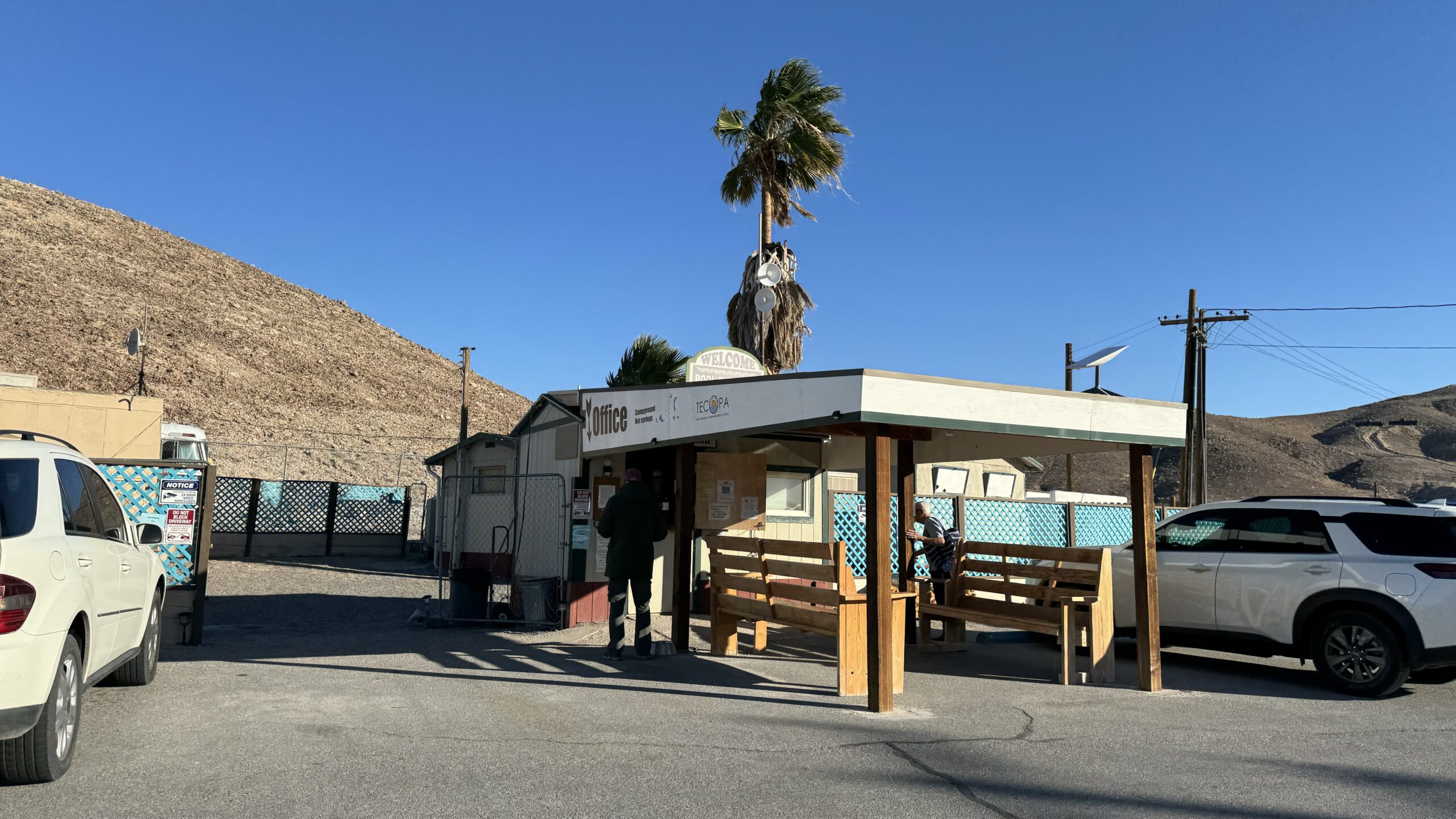A long-simmering culture of fear surrounding the management of the Tecopa Hot Springs Campground has come into sharper focus this week—just as Inyo County has issued a 30-day ultimatum to Tecopa Hot Springs Conservancy LLC, the current concessionaire, to bring the facility into compliance or face termination.
Representatives of the Conservancy have not responded to TecopaCabana’s requests for comment.
Crumbling Promises and Unaccounted Cash
Once billed as a grassroots team of stewards with dreams of restoring Tecopa’s mineral springs into a vibrant desert haven, the current operators are now facing pointed accusations from the public and scrutiny from the County.
Financial figures obtained by TecopaCabana from internal campground budget documents show $26,059 reported in “cabin and grounds maintenance” despite widespread accounts of deteriorating conditions, and $8,300 labeled as “volunteer expenses”—even though volunteers are not paid.
One source, speaking on condition of anonymity, offered a stark account of day-to-day conditions at the campground under the management of Tecopa Hot Springs Conservancy. Leadership by Paul Barnes, along with on-site oversight by Chris Topher—whose full name does not appear in public records or social media—was sharply criticized in a tip submitted following the publication of our initial report.
“Chris is HIGH all the time. Nobody says anything out of fear. Many know the CASH that comes in is not reported. Receipts are not given. Only records are CC sales. Very rude. Yelling at customers. Telling them to “fuck off” raising the price from one month to another. Yeah Paul wasn’t doing much of anything but knowing Chris is high on something most the time tells you something. If Chris is not there Paul HAS to be there and he does NOT want to work there. I know Paul is in charge but Chris is a bigger problem because he’s the one running it,” they said, adding, “Change is greatly needed.”
Despite these concerns, there is no indication that Inyo County has conducted regular financial audits of the concessionaire. The lack of oversight on how fees collected from public use are managed raises questions about accountability.
County Issues 30-Day Cure Notice
As reported yesterday by TecopaCabana, Inyo County has issued a formal 30-day notice to the Tecopa Hot Springs Conservancy to cure contractual deficiencies or risk losing the lease. The County stated:
“Regarding the Tecopa Hot Springs Campground and Pools, numerous deficiencies with the current concessionaire’s performance under the current concessionaire agreement have been identified. The County has given the concessionaire 30 days to cure the deficiencies and bring operation of the facility into compliance with the contract.”
Under the terms of the County’s concessionaire agreement, the operator is required to do upgrades, maintain all facilities in a clean and operable condition, report revenues and expenditures accurately, ensure equal public access to amenities, and respond promptly to public complaints. Violations of these terms are grounds for termination.
The County has not yet publicly specified which deficiencies were cited in their 30-day notice to cure violations, though the timing of the notice follows a wave of complaints from both local residents and former visitors regarding management, cleanliness, and customer treatment.
From Stewardship to Silence

In the early years, the concessionaire publicly embraced a vision of community building. In a 2015 blog post titled “First Weekend: Insights, Intrigue, Exhaustion And Excitement!”, co-founder Nancy Good, Barnes’ partner, described the operation as “all hands on deck,” full of scrub-brush camaraderie and hopeful dreams:
“Our hope is that if there is a concern, our community will come to us first, get the facts straight from us, and then actually believe us…”
She continued, “We ask that you give us a chance. That you cheer us on. That you treat us with the very respect you wish from us. And that you recognize that we’ve been given a run-down facility that needs work, a lot of work (and a lot of financial expenditure), for it to shine as it was intended to. And we want it to shine.”
Good’s early reflections suggest that she and Barnes understood the weight of responsibility that came with being awarded the concessionaire contract. Yet the blog posts come to an end in 2018, and the spirit of good-faith stewardship they once projected, and the many promises that accompanied it, appear to have faded since they signed a second contract with Inyo County in 2021, doubling down on their commitment to upgrade the public property.
Where Public Stewardship and Private Enterprise Intersect

One of the most contentious figures in the saga is local mechanic Paul Carter, who is described on the Conservancy’s blog as a “volunteer” but functions more like the concessionaire’s enforcer.
Recently, Carter has taken to social media to spread disinformation against this news outlet and accuse it of lying—without offering any evidence. As one resident put it plainly: “Please stop using Happyville for negative posts… Please?”
Carter is also business partners with Paul Barnes—the official director of the Conservancy—through Mojave Mining Company LLC.

That connection is significant. Though it is unclear how they are financing their operation, if the Conservancy loses its lease and the campground stops generating cash for Barnes, both men could see their mining operation lose a financial lifeline. Videos on Mojave Mining Company’s YouTube channel show Chris, mentioned earlier, along with Carter, Barnes and Good using heavy-duty equipment—bulldozers, drills, and metal detectors—on 120 acres of remote land off highway 127 in nearby San Bernardino County.
In April 2025, the Mojave Mining Company filed fourteen new lode mining claims with the Bureau of Land Management marking a notable expansion of their prospecting efforts in the region. For a lode claim to be considered valid, federal law requires not only the precise location and annual filings but also the discovery of a valuable mineral deposit and continued regulatory compliance.
These new filings mark a renewed and more deliberate phase of exploration for the Mojave Mining Company, building on earlier efforts that lapsed after the closure of their first seven claims from 2013. Since reinitiating activity with a fresh set of four claims in February 2023, the company appears to be intensifying its pursuit of mineral development on public lands.
However, despite this escalation, Mojave Mining Company’s YouTube updates went silent nearly a year ago—just as core samples were reportedly being analyzed—leaving their 1.29K subscribers without closure or follow-up. Around the same time, Barnes started a new YouTube project—Watch The Sphere, a 24-hour livestream from his Las Vegas home featuring continuous video of the Sphere and the Linq High Roller.
Broader Impact on the Community
While the drama surrounding the campground may seem insular, its effects ripple outward. Tecopa, a tiny town on the edge of Death Valley National Park, relies heavily on its public hot springs as a key attraction and source of economic vitality. Concerns about poor management, erratic customer treatment, and exclusionary policies not only deter tourists from returning—they erode local trust and compromise access to what should be a shared public resource.
With tourism being one of Tecopa’s few economic engines, the question of who controls access to its most iconic destination is no small matter.
The County’s deadline now looms, and the future of one of Southeast Inyo’s most cherished public spaces hangs in the balance. Whether Tecopa Hot Springs Conservancy will address the allegations and restore trust—or whether a new chapter must begin—remains to be seen.
This is a developing story. To leave a public comment, scroll down to the comments section. If you would like to contribute your perspective please send us a message using the form below. Skip the name and email fields if you would like to remain anonymous.


Leave a Reply